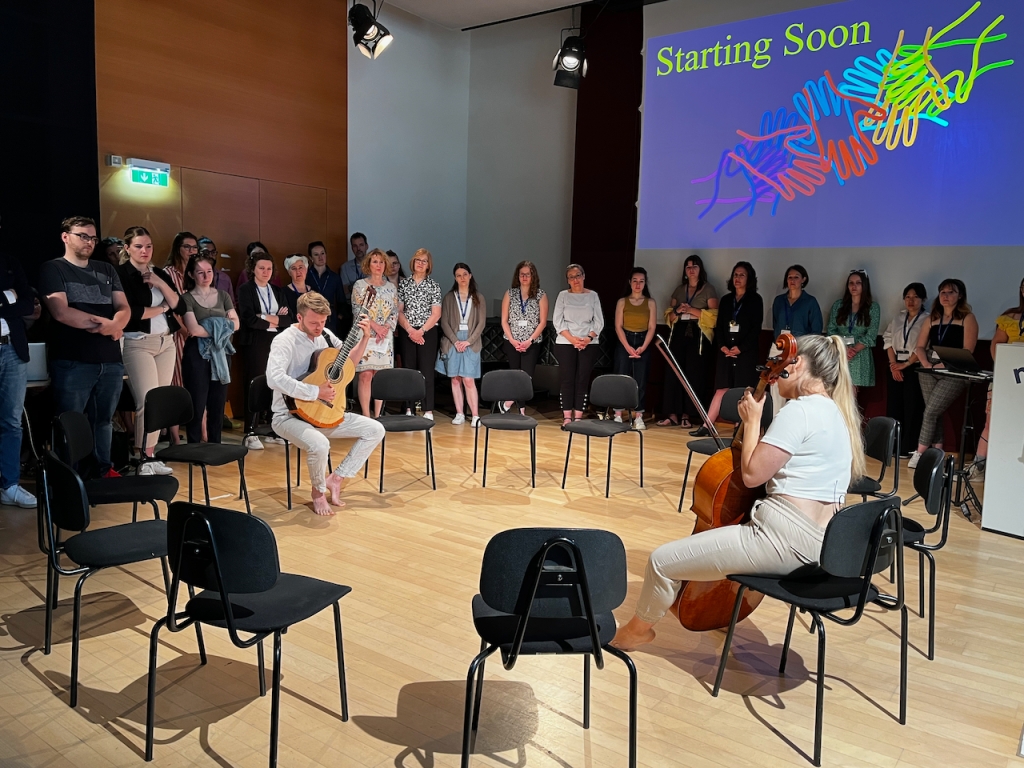Last week I had lunch with an old friend who holds a senior position in the arts. During our conversation, he asked me to explain the difference between cultural democratisation and cultural democracy. So I did. He understood the first, he said, but not the second. So I tried again. Still not. And again, in simpler terms. No.
I knew he was teasing me, and that he’s read A Restless Art, where these concepts are discussed at length in Chapter Four and where I even risk offering a definition of cultural democracy. But I also knew that he wanted a better explanation than the one he had. I did eventually find it, in the formulation at the end of this post, which defines it as art by, with and for everyone. Still not quite satisfactory, to my mind, but better than most and reasonably simple.
The next day, I remembered the passing frustration I’d felt in trying to explain something which, to me, has been a basic element of all thinking about culture and society for over 40 years. I remembered how often I’ve had similar conversations, and how obvious it is that many people who work in the arts, including decision-makers like my friend, no longer understand these terms, if they ever did. I remembered the Arts Council’s Let’s Create and the entirely foreseeable difficulties it has faced in trying to act on a strategy that promises cultural democracy without accepting its consequences.
So I sat in a sunny London garden, and wrote this:
- A short thread about cultural democracy. Over the years, I’ve spent a lot of time trying to explain the difference between cultural democratisation and cultural democracy. It matters because the difference is at the heart of cultural policy and has real world consequences
- Cultural democratisation aims to make the fine arts accessible to everyone, as a public good, like education or health care. It is what ACE meant when it coined the slogan ‘Great art for everyone’.
- The strength of this idea is that it’s simple, it links with other public policy priorities, and it suggests fairly straightforward actions. That’s why it has guided decisions since the 1950s
- Its weakness is that it is top down and can be disempowering. It provides access to the arts and culture but only on the (self-interested) terms of those of who create, manage and live from it. It’s a radio that is set to broadcast, but not receive.
- In the late 1960s that paternalism was challenged by a new approach which its advocates called cultural democracy. They wanted bottom-up, networked, open forms of culture that reflected social diversity and the fluid, changing nature of artistic expression.
- Cultural democracy’s weakness was that the idea is complex, challenges existing policy and doesn’t suggest obvious actions.
- The tension between these alternative visions of culture, people and society is old (I think it goes back to the early 19th century) and continues to define policy and the decisions and actions that shape cultural life.
- But it’s also misunderstood and underestimated, and that contributes to poor decision-making and outcomes in the arts. It would help, I think, if decision-makers acknowledged that these are real, political choices and talked better about how they are responding to them.
- That is tricky, though, if the ideas themselves are not well understood. Cultural democratisation is easy – better access to the arts – and sounds like a simple, obvious good (though it isn’t). Cultural democracy is much more difficult to define or explain
- So here, in as few words as possible, is a suggestion. Cultural democratisation = Great art for everyone. Cultural democracy = art by, for and with everyone. (You can’t determine whether it is ‘great’ in advance of people creating it.)
- It’s a foundation on which to build the artistic, political and social debates we need. There’s a fuller description of these ideas in ‘A Restless Art’, but remember that these are living practices that change all the time.
This little outline has been read and shared much more than I expected, and some people have liked its simplicity. I’ve been surprised but it reminds me that things are rarely as obvious to others as I assume because, of course, we’re all different. It’s a rookie mistake on my part, but I’m still making it.
So I decided to put the thread here, because in its way it’s also part of the discussion about the future of the arts in England about which I have written recently. What unites Nicholas Hytner’s and Nicholas Serota’s proposals is that neither takes any account of the philosophical and political distinction between democratisation and democracy.
It was already my intention to talk about this in A Selfless Art because it’s part of why I believe we now need a fundamentally different approach to co-creation. Projects, however good, are not a substitute for policy. Projects change people. Policies change societies.
The photo shows a musical performance at the opening of Turning Social, a conference about music mediation which I addressed in Vienna last week: classic cultural democratisation.

